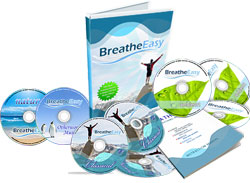Or can it?
The Internet and other media have been abuzz lately about the ability of watermelon to reduce high blood pressure. In fact, a popular natural health blog I subscribe to goes even further and claims that eating watermelon can cure high blood pressure.
That’s a mighty big claim. Let’s look at the facts…
Among other healthy nutrients, watermelon contains citrullin, an amino acid associated with dilated blood vessels and lower blood pressure. Citrullin is converted in the body to L-arginine, a precursor to nitric oxide, the true powerhouse that acts directly on the walls of arteries to relax and open them.
It was previously believed that virtually all of the watermelon’s citrullin was found in the rind and therefore useless for direct consumption. But further study shows that citrullin is also present in the edible part of the melon and it is this finding that has stirred the recent excitement.
The buzz is related to reports circulated a few months ago that watermelon could be a “natural Viagra”. Funny enough, the same nitric oxide mechanism that lowers blood pressure is also responsible for the “viagra effect”: dilation of blood vessels and improved circulation.
Watermelon is indeed extremly nutricious. But its connection to lower blood pressure and and erections is, at best, tenuous. Citrullin is related to L-Arginine, which is a component of nitric oxide, the true protagonist of the story. Even more stretched is the matter of practicality, i.e. how much citrullin is actually consumed through eating watermelon?
As is so often the case with so-called superfoods, the actual amount contained in the food is negligible. The idea of getting a therapeutic dose through watermelon is far-fetched. As Edwin Goldstein, M.D., chief editor of the Journal of Sexual Health, explains: “it’s the equivalent of someone dropping a beer bottle in Minneapolis, where the Mississippi River starts, and hoping to see it make an impact on someone in New Orleans.”
So the idea of significant blood pressure reductions, let alone curing hypertension, from watermelon just is not likely to happen. Of course, it’s always wise to include watermelon, along with countless other nutricious foods, in a healthy, varied diet. But for health purposes people need to stop this notion of “superfoods”. Think “diet” for health, not “foods”.
This watermelon caper epitomizes the theme of my most recent article: Are Superfoods Making Superfools Of Us?




 A unique method of blood pressure control: The BreatheEasy Sytem
A unique method of blood pressure control: The BreatheEasy Sytem